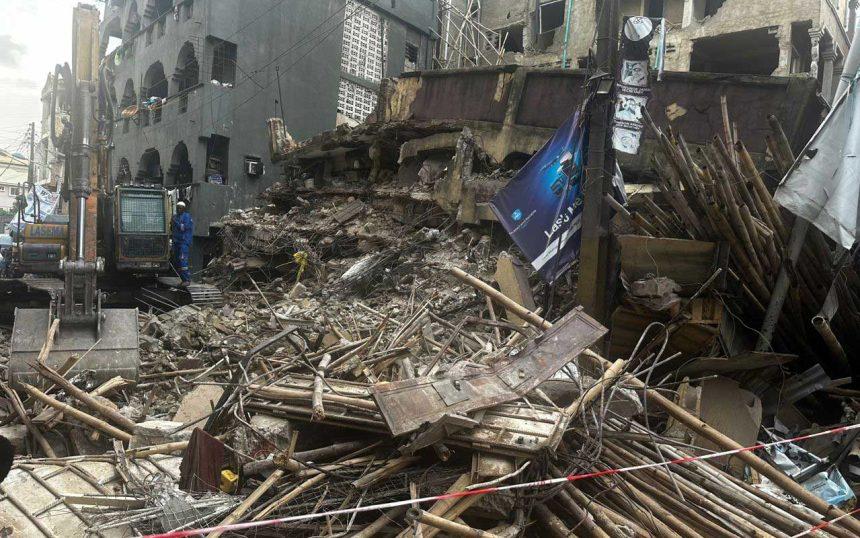Lagos, Nigeria’s bustling megacity, is grappling with a growing crisis as building collapses have become alarmingly frequent, occurring on average once every two weeks this year. While the financial losses can be tallied, the true cost—the lives lost beneath the rubble—remains incalculable.
These tragic incidents highlight severe governance failures, with allegations surfacing that contractors are cutting corners to save money. Despite existing regulations, maintenance schedules, and building inspections, the system appears broken. Those responsible are rarely held accountable, allowing the cycle of destruction to continue.
Dubbed by experts as “the building-collapse capital of Nigeria,” Lagos has witnessed at least 90 buildings crumble over the past 12 years, leading to the deaths of over 350 people, according to the Council for the Regulation of Engineering in Nigeria.

One of the most harrowing incidents occurred in 2021 when a 21-story luxury apartment building under construction in Ikoyi collapsed, killing 42 people. Sunday Femi, a local resident, recalls the horrific event: “I was just meters away when the building collapsed. I rushed to help, but sadly, I knew some of those who died. I think about it every day.”
The site of the collapse remains sealed off, with state government officials the only ones allowed entry. Despite a panel of experts conducting an investigation, the findings and recommendations have yet to be made public, leaving many unanswered questions.
Chief Magistrate Oyetade Komolafe, who presided over the coroner’s inquest, attributed the collapse to the irresponsibility and negligence of government agencies tasked with approving and supervising construction projects. Yet, no one has been held accountable.
READ ALSO: NSE Blames Rising Building Collapses on Use of Non-Professionals in Construction
As Lagos’s population swells to over 20 million, the demand for housing and commercial property intensifies, turning the city into a giant construction zone. However, the necessary oversight and regulation often fall short. The Lagos State Physical Planning Permit Agency is responsible for approving building plans, and the Lagos State Building Control Agency (LASBCA) is tasked with inspecting construction sites. The Standards Organisation of Nigeria is supposed to ensure the use of quality building materials.
Yet, these procedures are frequently bypassed. LASBCA’s spokesperson, Olusegun Olaoye, acknowledged the criticism but attributed the agency’s failures to a lack of resources. “We have about 300 building inspectors and supervisors, but we need more,” he said.
Experts agree, suggesting that thousands of inspectors are needed to adequately monitor the city’s relentless construction activity. Without proper oversight, some companies continue to violate building codes, using substandard materials and untrained labor—factors cited for the frequent collapses.
READ ALSO: Several Trapped as One-Storey Building Collapses in Minna
Despite these violations, the state’s building agency rarely takes legal action. “To my knowledge, there haven’t been any prosecutions related to building collapses in Lagos,” admitted Olaoye.
Alleged political influence further complicates the pursuit of justice. “If you’re connected to people in power, you can avoid accountability, even in cases of building collapse,” a Lagos state politician told the BBC, requesting anonymity.
With 19 building collapses recorded this year by the Lagos State Emergency Management Agency, the total for 2024 is expected to be the highest in the past decade. Yet, the necessary lessons may remain unlearned. Prof. Sadiq Abubakar, head of the Council for the Regulation of Engineering in Nigeria, recently acknowledged the country’s lack of capacity to investigate these incidents thoroughly. “We don’t have the expertise, the equipment, or the resources,” he said.
As construction continues unchecked, the lives of workers and residents remain at risk, with the possibility of more tragic collapses looming over the city.



